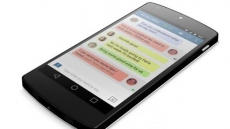Sharing science work via social media like Twitter is good for researchers in getting their works noticed, shows a study.
Even young scientists are more keen to share their achievements via the social media, showed the study.
"I've been in science communication for a while now, and I am really seeing a change - especially among the younger scientists - in their willingness to share their work," said Dominique Brossard, professor life sciences communication at University of Wisconsin-Madison, US.
There is a link between "h-index" -- a measure of the quality of a researcher's work and influence -- and whether the scientists interact with reporters and get mentioned on Twitter, showed the study.
“Attention from reporters is good news for h-index, but couple that with attention on Twitter, and you see a more pronounced spike in reputation,” stressed Brossard.
Around 30 percent of the members of the faculty at UW-Madison are using social media at least three times per week to find news and insights about science, showed the study.
"What this shows us is that sharing your science with the public is not hurting the science by stealing time," stressed Brossard.
"As in other areas, such as politics for example, social media was once met with scepticism but is increasingly part of the culture," pointed out Michael Xenos from University of Wisconsin-Madison.
If the goal is to encourage people to be productive scientists, and if directors of labs are discouraging people from engaging in this activity, they are actually hurting the science itself. Because people who do this are cited more often in scientific journals, they are making science accessible to broader audiences at the same time, concluded Brossard.
The study appeared in the journal Journalism and Mass Communications Quarterly.




